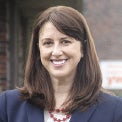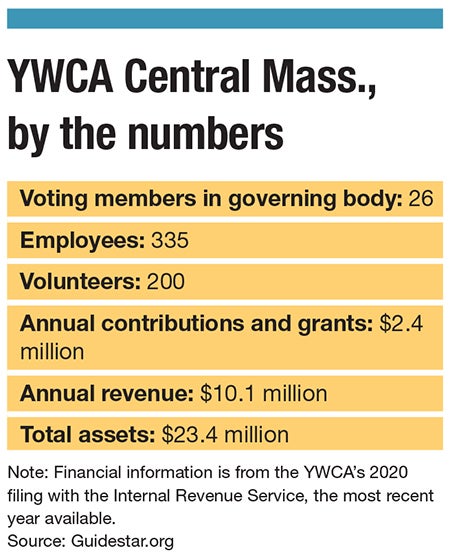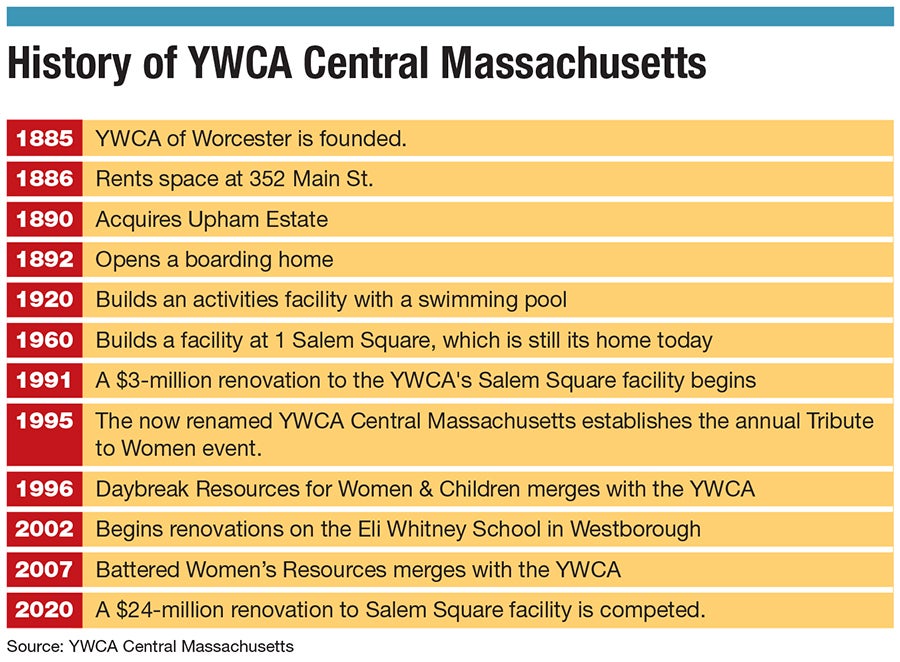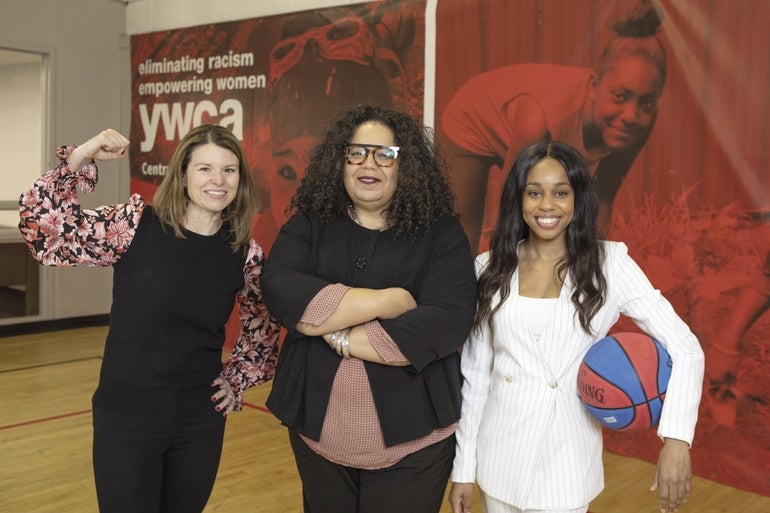YWCA Central Mass. made it its mission to eliminate racism and empower women. It can now count not only State Sen. Robyn Kennedy but members of the Worcester’s school committee and city council as former board members.
Get Instant Access to This Article
Subscribe to Worcester Business Journal and get immediate access to all of our subscriber-only content and much more.
- Critical Central Massachusetts business news updated daily.
- Immediate access to all subscriber-only content on our website.
- Bi-weekly print or digital editions of our award-winning publication.
- Special bonus issues like the WBJ Book of Lists.
- Exclusive ticket prize draws for our in-person events.
Click here to purchase a paywall bypass link for this article.
On Nov. 8, Robyn Kennedy defeated Lisa Mair in the race for the vacant Massachusetts state senator seat. Harriette Chandler had held the position representing Worcester since 1991 – nine terms. Kennedy has a strong background in local politics, starting in the early 2000s as an intern for U.S Congressman Jim McGovern (D-Worcester). But another note in Kennedy’s long resume has become commonplace among women in positions of power and influence in the city. She’d served on the board and worked for YWCA Central Massachusetts.
YWCA on Salem Street in Worcester has made it its mission to eliminate racism and empower women. Started in 1853, the Worcester branch can now count not only Kennedy but members of the city’s school committee and city council as former board members. It’s become a launching pad.
“A lot of women, through leadership development and through the support at the YWCA, we see that we have a huge role to play when it comes to being at the decision-making table at different levels, whether it is city council, school committee, legislative offices,” Kennedy said. “That is where some of the inspiration to run for those seats [comes from] so that we are at the table helping, with the experience we have doing the work, make the change that is needed.”

YWCA was founded by 14 women with the objective of promoting “the temporal, moral and religious welfare of young women who are dependent on their own exertions for support,” according to its website. Originally, the YWCA provided housing to women moving to Worcester to work in the mills. The nonprofit still provides housing today.
That moral compass has expanded through the years, and the mission grown out of those beginnings is what has set it apart and brought powerful women through its ranks. When now YWCA CEO Deborah Hall came to Worcester from Kansas City, Missouri, she sought out a place where she could get involved. Someone told her to reach out to Linda Cavaioli and the YW. It’s a common refrain for women.
“This YW is just an iconic place in Worcester,” Hall said. “The women that have been through here have been an intregral part of the community. They are trying to make the community the best it can be.”
Hall had risen to be the YW’s director of domestic violence services when in May 2021 the board tabbed her to take over for Cavaioli.
Empowering women, eliminating racism
Cavaioli spent 29 years as the YWCA’s executive director. She led the institution from 1992 to her retirement in 2021 and helped shape the board by inviting on people like Hall, now City Councilor Etel Haxhiaj, and school committee members Sue Mailman and Jermoh Kamara.

Kennedy had worked at the YWCA while in college. Her sister worked in the domestic violence shelter, and Kennedy watched the children while the adults were in support groups. She stayed on after college and worked at the shelter before turning to politics. Eventually, Cavaioli and the YW’s message pulled her back in by asking her to be on the board. Kennedy eventually resigned that board position to become the YW’s CFO.
“For me, the mission of the YWCA is really core to my value system,” said Kennedy, who resigned as CFO before she was elected state senator. “It is deliberately eliminating racism and empowering women, with the understanding that until we empower all women by eliminating racism, we can't effectively empower women.”
That same message is what has stuck for others like Haxhiaj, who won her seat on city council in 2021. Haxhiaj spent 12 years on the YW board, and it gave her a place to grow and put action to her values. She found the YW as one of the few places enabling women to grow into leadership by putting them there, specifically at a young age when they might need a push to find their voice.

“There are very few spaces where you feel you have that community of women around you, that can mentor and support you,” Haxhiaj said.
Community is the first reason she joined, and the second was because the YWCA gave her and others a place to work on policies centering on gender and racial equity.

For Mailman, she believes the YW’s spirit and its dedication to not only having a board of members, but a strong one, is what makes it stand apart. The board isn’t some token appointment. It’s active and engaged. On the website, the board is called “Our Fearless Leaders.”
“The spirit of the YWCA is so interesting,” Mailman said. “So many people right now that are elected have touched the YWCA, and I think it is a testament to the strong part of the working board [on] advocacy about domestic violence, about childcare, about women's issues, about all kinds of equity, and those are all things we’re facing today.”
Each chapter of YWCA shares the same mission statement. They all want to empower women. A lot of YWCA’s share the same programs, but each branch is autonomous and can build its own mission. That is where the Central Massachusetts branch builds out on its goals. It’s in that mission to not only be inclusive and give women a platform to succeed, but the YWCA sees itself as an all-inclusive women’s advocacy and resource center branching out with its collective voice to make meaningful change.
“Where change happens is when you try to influence policy, public policy. It is a kind of parallel tract of providing services and bringing together a collective voice to have an impact on policy that affects women and children,” Cavaioli said.
Historically, YW chapters throughout the country have been involved in their communities, Hall said, but lately the organization has been more involved in politics, such as hosting candidate forums and voter registrations, while being more active on social media.
“It attracts that type of energy we see in the people who come through here,” Hall said. “It is rooted in social justice.”
WBJ Editor Brad Kane contributed to the reporting for this story.

